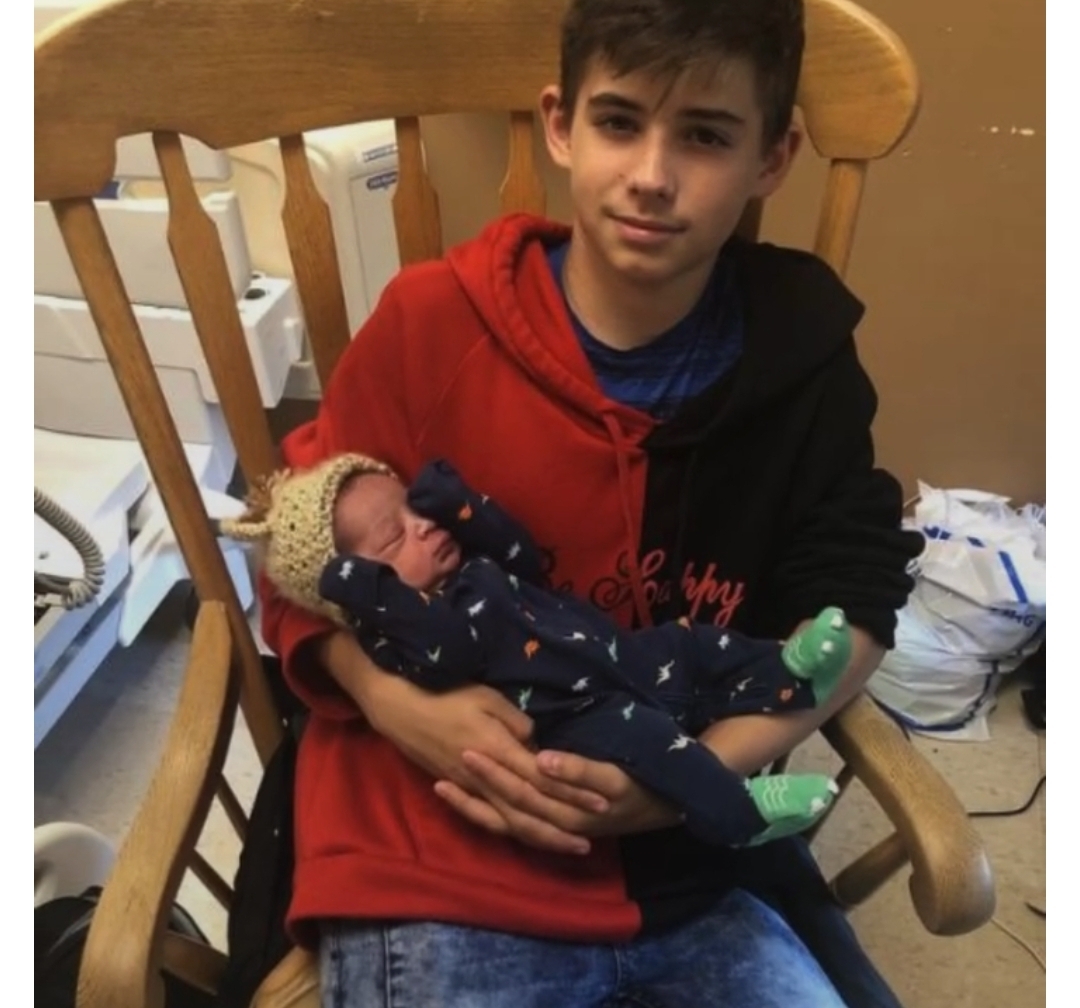When Zach texted me from school saying, “Can you come get me? It’s serious,” I had no idea what was coming.
He got in the car barely meeting my eyes, hands trembling, hoodie half-zipped as if he’d rushed out of class. I tried to lighten the mood with a joke—asking if he’d failed a test or gotten into a fight. But he just said, “It’s not about me. It’s about her.”
That’s when I learned the truth.
The baby wasn’t his girlfriend’s anymore. She had walked away, leaving the hospital discharge papers unsigned. And Zach—my awkward, video-game-loving son who was still learning to shave—had signed them himself.
He looked me in the eye and said, “If no one wants her, I do.”
At first, I thought he was joking. Zach was only 15. He barely knew how to take care of himself, let alone a baby. His idea of responsibility was taking out the trash and charging his phone. I wasn’t sure whether to laugh or cry, but I stayed calm and asked him to explain.
“I don’t know what to do,” he said, rubbing his face. “But I can’t just leave her there, Mom. I’m the only one who’ll look after her. I don’t want her to grow up alone.”
That’s when it hit me—this was no joke. My son, who I still thought of as a kid, had just made one of the most grown-up decisions of his life. The world was already hard enough for him—why was he taking on this?
The next days were a blur. We contacted social services, who tried to explain this wasn’t something Zach could handle alone. But every time they offered options, Zach stood firm: he wanted to keep the baby. He said he was ready. At first, I thought he was just trying to prove something—to himself, to me, maybe to his friends. But no matter what I said, he wouldn’t back down.
One evening, we sat in the living room with a newborn girl sleeping in a pink bassinet. She was tiny, fragile, and completely dependent. I had no clue how we’d manage.
“Mom,” Zach said one night, gently rocking her to sleep, “I just don’t want her to feel abandoned. I know what that’s like, you know?”
I didn’t understand at first—what did he mean? But looking at him, I realized it wasn’t just about the baby. It was about him. He’d always been quiet about his feelings, retreating into video games when things got tough. He’d never really opened up. Now, here he was, showing me a side I hadn’t seen before.
“I’m here for you,” I told him softly. “You don’t have to do this alone. We’ll figure it out together.”
But inside, I was terrified. Zach was too young, too inexperienced. He didn’t know what he was getting into—and honestly, neither did I. But if he was determined, I had to support him.
The first months were chaotic. Zach stayed up late figuring out how to feed, change, and soothe the baby. There were sleepless nights, frustration when nothing worked, and moments when Zach withdrew, overwhelmed by the responsibility. I felt guilty for not doing more, for not stepping in like I used to. But Zach needed to lead, even if he wasn’t ready. I had to let him grow, even if it was hard to watch.
One afternoon, exhausted and tearful, Zach admitted, “I don’t think I can do this, Mom. She deserves better. I’m not enough.”
His words hit me hard. I didn’t know what to say. I’d always believed in his strength, but now I saw he was human—he didn’t have all the answers. And that was okay.
“I know it’s hard,” I said gently, “but it doesn’t mean you’re failing. It means you’re realizing this is a big responsibility. It’s okay to ask for help. We’ll get through it together.”
Zach sniffled, “I feel like I’m letting her down.”
“You’re not. You’re learning. We all are. And if we need help, we’ll get it. But you’re not alone.”
So we reached out—to family, to teen parent groups, to social services again with more support in place. Slowly, things settled. Zach found a routine. It wasn’t easy, but he learned to care for the baby and, in a way, care for himself.
Months later, Zach’s girlfriend came back. After leaving the baby at the hospital, she realized she couldn’t abandon her daughter. She wanted to co-parent, and they began rebuilding their relationship. Zach was still unsure, still scared, but he was accepting he didn’t have to do this alone.
What surprised me most was Zach’s growth. I’d feared he’d fail, that he was too young, too immature. But he was learning what being a father really meant—not perfect, but real.
Zach wasn’t just caring for the baby—he was learning responsibility, patience, sacrifice. And as a mom, I saw him change before my eyes. The son who once couldn’t sit still without a screen was now reading books and playing with his daughter. It was humbling.
In the end, it wasn’t me teaching him—it was him teaching me.
We often fear the unknown and our children’s choices. But Zach showed me growth comes not from perfection, but from being willing to learn and adapt, no matter how tough the journey.
If this story touched you, share it with someone who needs to hear it. Sometimes the hardest moments teach us the most.
